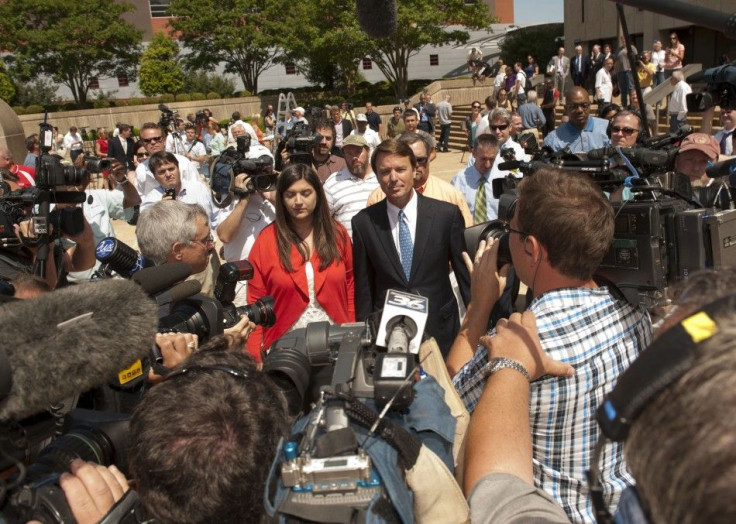For Edwards, A Prison Sentence Was the Dealbreaker
The embattled former senator decided going before a judge was a better gamble.

Federal prosecutors were looking to make a deal with former Senator John Edwards; they would accept his plea of guilty to three misdemeanor campaign finance violations allowing him to avoid a felony conviction and the ability to keep his law license.
For the former trial lawyer, one of North Carolina's top plaintiff's attorneys, the smoking gun it seemed was an offer of up to six months in prison if he plead to the lesser charges.
Edwards, who clerked for a federal judge after law school discussed the deal with his legal team and together they discovered it might be better to argue before a judge to discuss alternatives.
The Raleigh News & Observer reports Edwards wanted an option allowing shim to spend time with his young children, the widower, now a single father after the death of his wife, Elizabeth to cancer, in December.
Edwards, 57, took his chances and accordingly was hit with multiple felony charges. Prosecutors had investigated for over two years and during that time had called witnesses who testified before a grand jury in Raleigh and a section of the U.S. Justice Department designed to prosecute elected officials accused of corruption.
The former vice-presidential nominee and failed 2008 Democratic contender's team had argued campaign payments to Edward's mistress, Rielle Hunter didn't violate campaign finance rules. His team tried unsuccessfully for a final time last month to point out what they saw as the weak parts of the government 's case but Justice Department officials gave the green light to indict.
Prosecutors at each stage of the talks had been leniency if Edwards agreed to plead to at least on felony count, which would definitely mean a hefty fine but would likely mean no time in federal lockup, the paper reported.
Edwards' camp didn't immediately respond to call from the International Business Times tonight, however reports make it clear that he did not want a deal that would mean giving up his law license.
Privately, Edwards had pondered the uncanny perception of trying to rebuild his image by starting a public interest law firm.
Edward's lawyers knew their case needed to be grounded on one idea: he didn't intend to break the law.
The criminal complaint alleges campaign funds were used only to keep the affair and subsequent pregnancy private and that contributions from wealthy donors Rachel (Bunny) Melon and prominent lawyer Fred Barron was part of a scheme to protect and advance Edwards's bid for the presidency.
Federal prosecutors must proveintent to violate the law in criminal cases and the team prosecuting the case allege evidence Edwards knew the contributions were a violation of campaign finance law.
After the presentment, Edwards told reporters he never, ever thought that I was breaking the law.
However in the hours before the presentment he had been thinking of claiming he did.
© Copyright IBTimes 2024. All rights reserved.





















